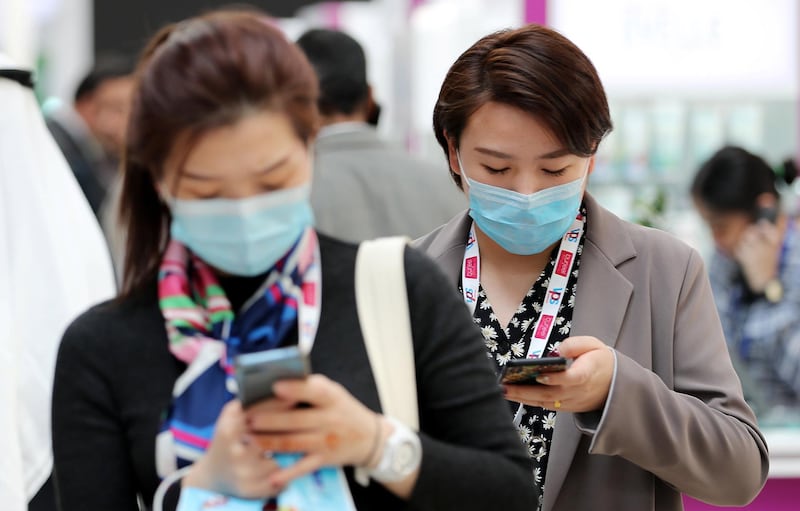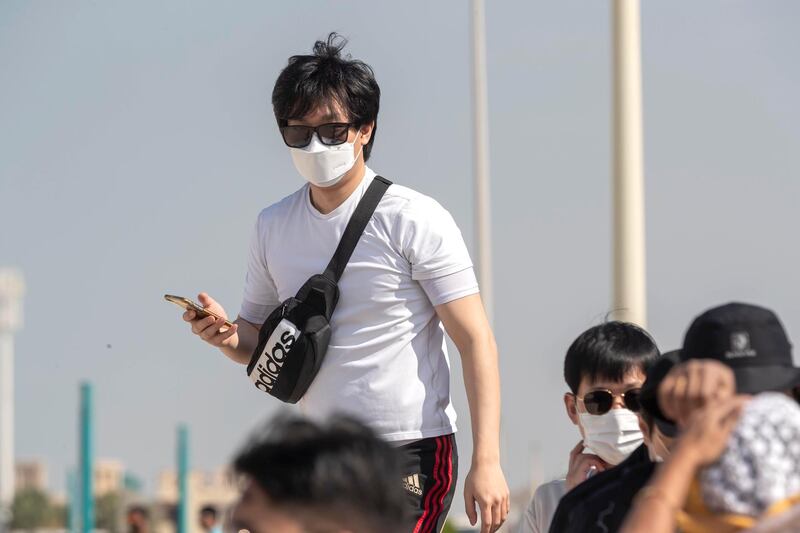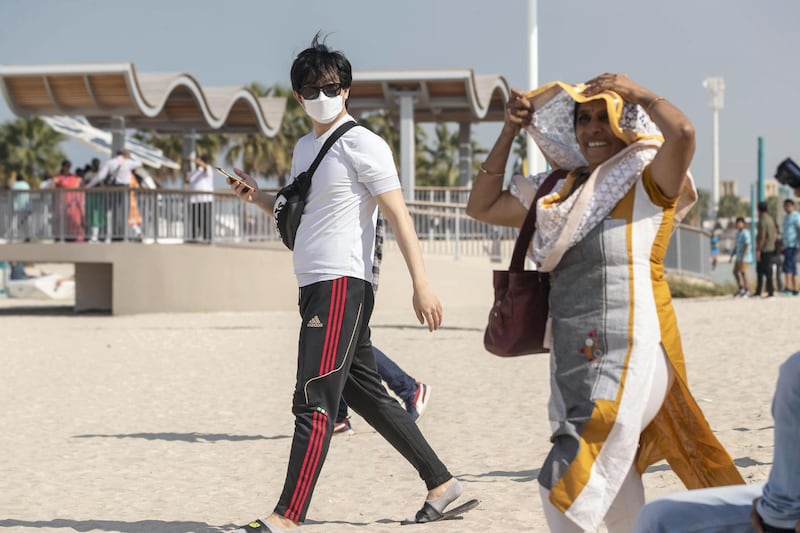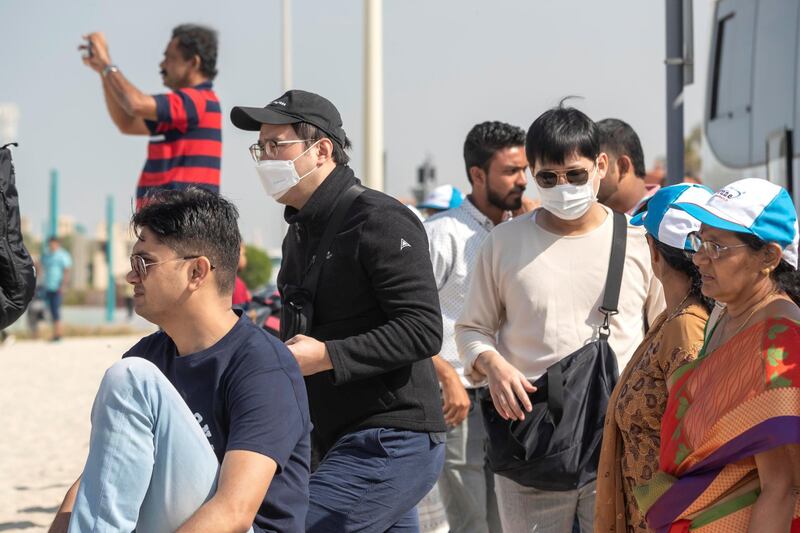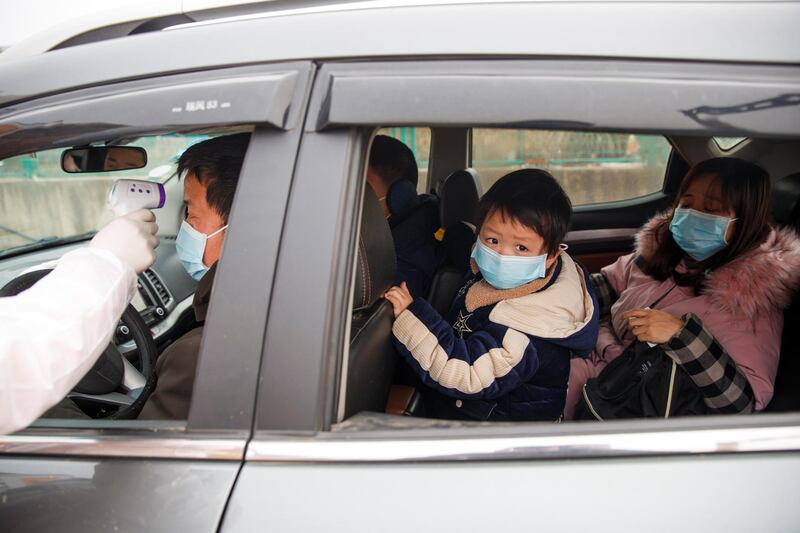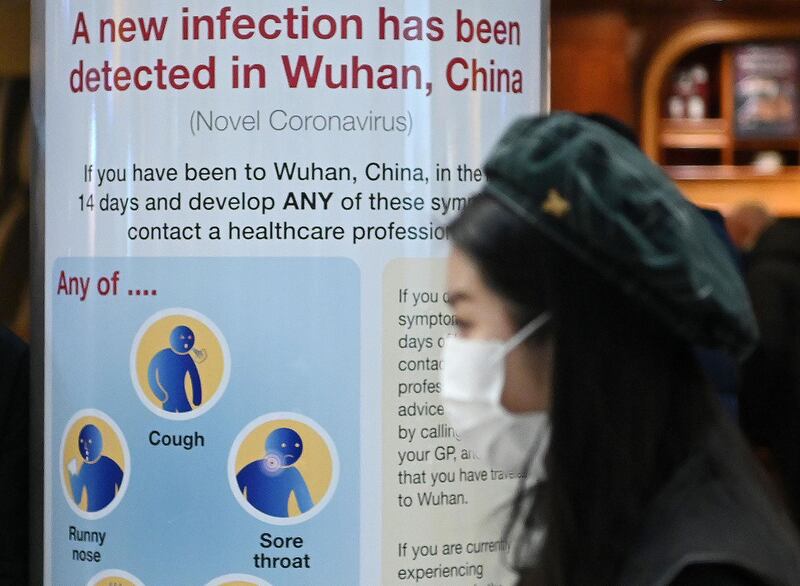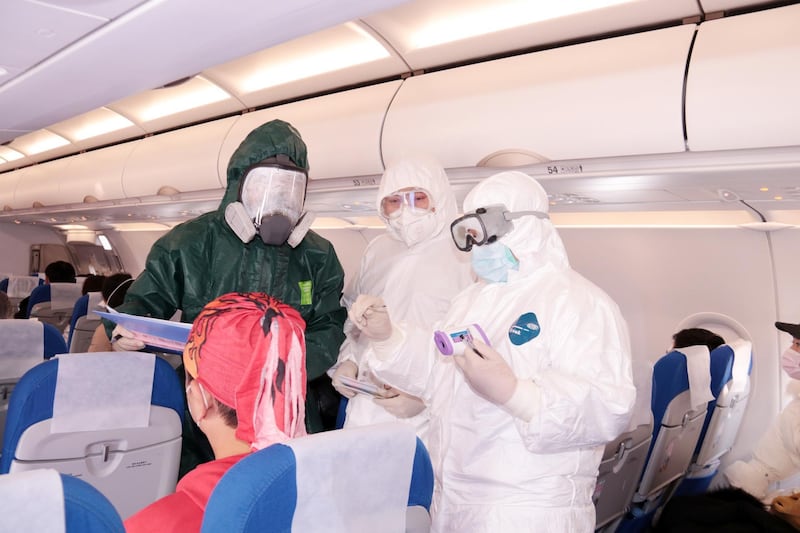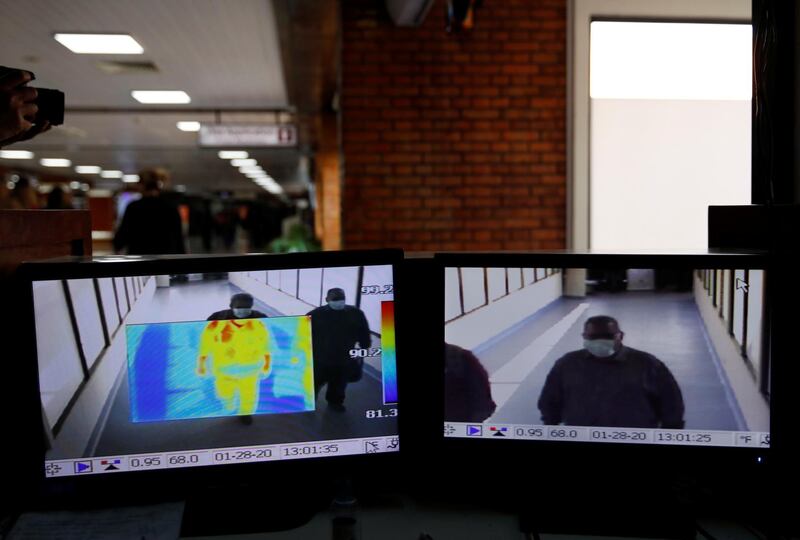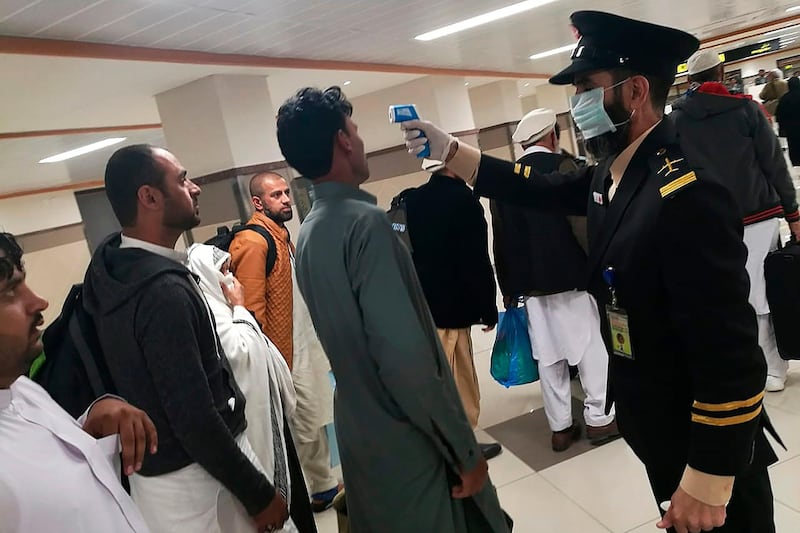Latest: Three Emirates Airline personnel in Dubai tested for coronavirus
Hospitals have seen a rush of UAE residents worried they have coronavirus, presenting doctors with blocked noses, sore throats and demanding vaccinations.
In the past two days medics have seen patients asking for tests after showing symptoms of common colds.
A Chinese family on holiday in the Emirates were the first people in the Middle East to be given positive coronavirus diagnoses, officials revealed on Wednesday. They remain in a stable condition.
Doctors and health officials urged the public not to panic - highlighting how the four cases, a mother, father, nine-year-old daughter and grandmother, are from Wuhan, the centre of the outbreak.
"I understand if people are concerned but they shouldn't be paranoid," Dr Sherbaz Bichu, chief executive of Aster Hospitals in the UAE, told The National.
“We have hypochondriacs come to us asking to be vaccinated against coronavirus.
"They believe they can be immunised against it. We have to explain to them this is not influenza or common cold and there is no vaccine to date."
At Medcare Hospital in Safa Park, patient walk-ins have doubled in the past few days, though its chief executive said staff were already seeing about 35 patients per day overreacting to colds.
“We have more patients coming to us with common cold. We’d get about 30-35 such patients before the news of coronavirus spread but now that number has gone to 55 to 60,” said Dr Shanila Laiju.

Some were found to be influenza, she said, but most are worrying needlessly.
“Patients who would normally wait two to three days to come see a doctor are now in the hospital even if they just sneeze,” she said.
“They want to be tested to make sure nothing is wrong with them.”
But doctors admitted it can be difficult to differentiate coronavirus from bad influenza.
How to protect yourself against coronavirus

“It usually affects the upper respiratory tract but when it gets worse the infection spreads to the lower respiratory tract and that’s when the patient develops pneumonia," said Dr Bichu from Aster.
“Sometimes a carrier of coronavirus is very difficult to identify as he/she may not show symptoms.
“The child who tested positive for coronavirus in the UAE was shedding the virus but showed no symptoms at all.
“We should remember there is no spot test available and the patient needs to be observed."
According to Dubai Health Authority guidelines, hospitals have to quarantine and monitor any patient who is suspected of having coronavirus.
“We take the swab sample of the patient and send it to Latifa hospital and they send the results to us in 45 minutes,” said Dr Laiju, from Medcare.
Hospitals have their own laboratories but all tests have to be carried out in the government-run Latifa Hospital.
Symptoms for the disease include a high fever, cough, shortness of breath and a sore throat, and in more severe cases, pneumonia is also possible, according to Cornell Health in the US.
Little is known about this particular strain of coronavirus, but it appears likely it can be transmitted by person-to-person contact.
Guidelines from the Ministry of Health in the UAE have been issued to hospitals across the country. It says patients should be assessed for the virus if they meet certain criteria.
These include coughing or having difficulty breathing, with or without a fever. They also include a history of travel to China in the past 14 days, or close contact with a person who is unwell and under investigation for the virus.
“Healthcare providers should obtain a detailed travel history for patients being evaluated with fever and acute respiratory illness," the guidelines said.
"Cases with epidemiological exposure, visit to Wuhan or contact with a laboratory-confirmed case should be urgently notified to the relevant health department."


